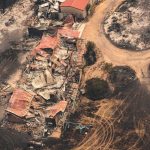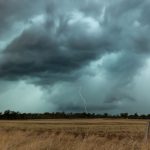 December 12, 2020 6:40 pm
Published by Climate Extremes
December 12, 2020 6:40 pm
Published by Climate Extremes
In September 2020, IAG and NCAR released a report Severe Weather in a Changing Climate (second edition), which incorporated research findings from numerous CLEX researchers. CLEX feedback also led to the incorporation of a new section on connected extremes in this report, highlighting the value of research into weather extremes.
 June 1, 2020 10:58 am
Published by Climate Extremes
June 1, 2020 10:58 am
Published by Climate Extremes
PhD opportunities are now available to work on projects jointly supervised across the ARC Centre of Excellence for Climate Extremes (CLEX) and Bureau of Meteorology. Candidates will be enrolled in one of the CLEX universities and spend significant time at the Bureau of Meteorology. This will allow the student to experience both the University academic and the publicly funded research agency environment.
 April 7, 2020 2:51 pm
Published by Climate Extremes
April 7, 2020 2:51 pm
Published by Climate Extremes
Research has established a link between Antarctic stratospheric winds and an increased risk of weather conducive to bushfires from late spring to early summer. Further research on the relationship between winds and ozone in the Antarctic stratosphere could improve seasonal forecasts for Australia.
 December 7, 2019 3:00 am
Published by Climate Extremes
December 7, 2019 3:00 am
Published by Climate Extremes
The CMS team took part in the Australasian Leadership Computing Symposium, are preparing a grand computing challenge for the new supercomputer Gadi, have made available a CMIP6 dataset, and is in the process of porting models from Raijin.
October 17, 2019 9:48 am
Published by Climate Extremes
Michelle Ho (CSIRO). Informing water security at national scales. 10am, Wednesday, October 30. Level 9, Seminar Room, 700 Collins St, Melbourne. External attendees without a local host should email sts_seminars_admin@bom.gov.au their details (name and affiliation) at least one day prior to arrange entrance.
October 14, 2019 3:41 pm
Published by Climate Extremes
Workshop Scope The Bureau of Meteorology Annual R&D Workshop 2019 will provide a forum for national and international researchers, including researchers from across the Bureau, CSIRO, industry and our university partners, to communicate innovations and advances in sciences related to weather, water, ocean and climate services. Environmental forecast services range from routine daily weather forecasts for the public to seasonal outlooks and climate projections aimed at informing decisions by agriculture and water managers. Emergency managers rely on highly customised services... View Article
October 14, 2019 3:16 pm
Published by Climate Extremes
Jeff Keppert (Bureau of Meteorology). Understanding Atypical Mid-Level Wind Speed Maxima in Hurricane Eyewalls
October 14, 2019 3:15 pm
Published by Climate Extremes
Tom Pagano & Deryn Griffiths (Bureau of Meteorology). How good are Bureau weather forecasts? A tour of BNOC verification results.
October 14, 2019 2:53 pm
Published by Climate Extremes
DELWP’s Hydrology and Climate Science Team would like to invite you to the: Water and Climate Science Day Research presentations from the Victorian Water and Climate Initiative Tuesday October 29th 10:00am – 4:00pm Melbourne Museum This is a unique opportunity to hear from leading researches on the impact of climate and climate change on Victoria’s water resources. Speakers from CSIRO, BOM and the University of Melbourne will be addressing some of the big questions! What can palaeoclimate reconstructions tell us about... View Article
 September 2, 2019 3:37 pm
Published by Climate Extremes
September 2, 2019 3:37 pm
Published by Climate Extremes
Melbourne’s existing water supplies may face pressure if global warming hits the 2℃ level. The effects of drying and warming in southern Australia are expected to reduce natural water supplies. If we overshoot 2℃ of warming, even the desalination plant might not provide enough drinking water to a growing population.




